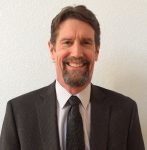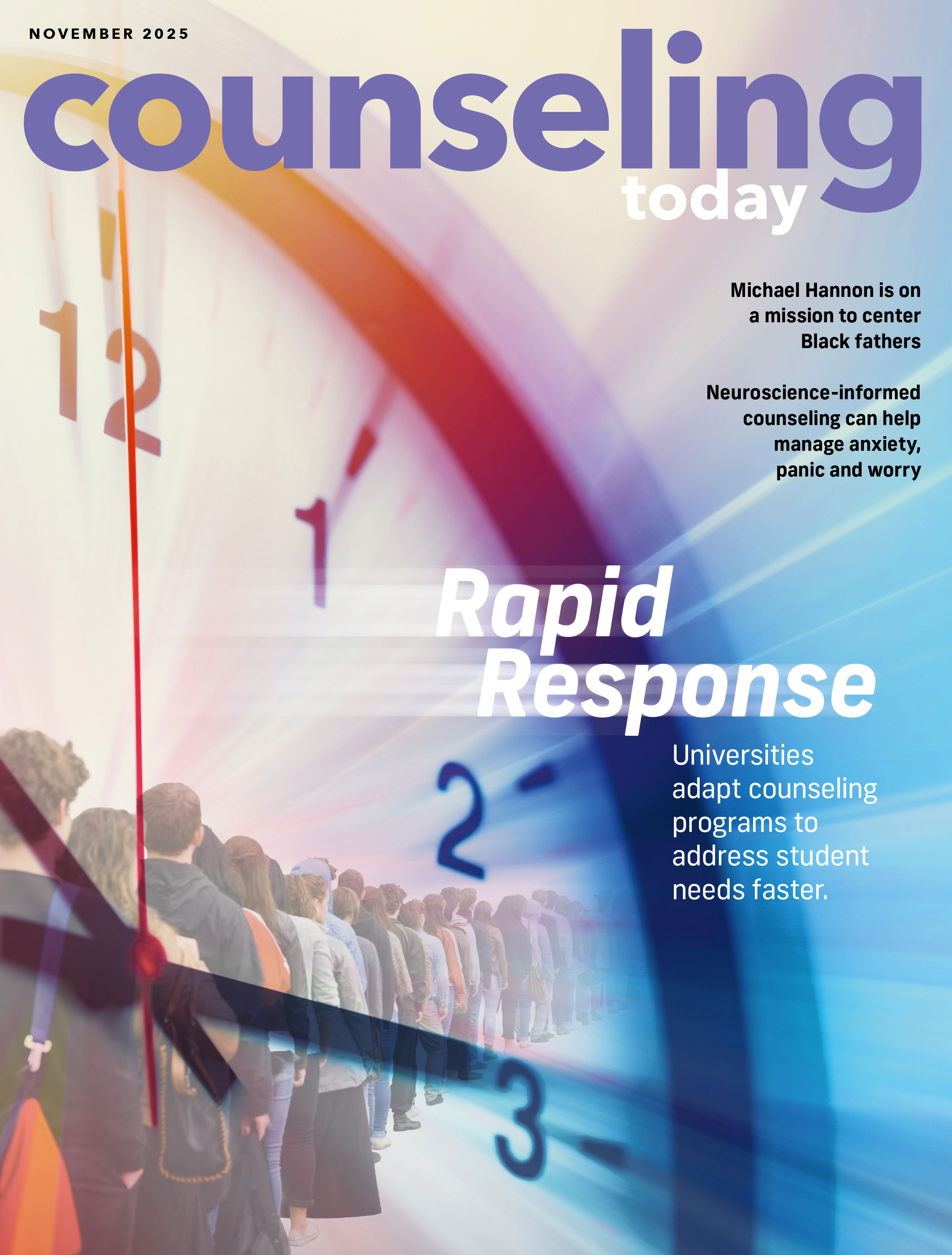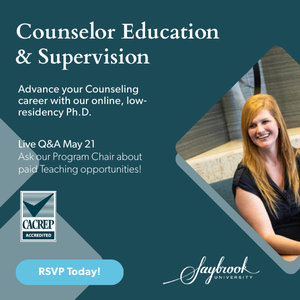Explore Counseling Today Articles
What I’ve learned as a new professional counselor
At the age of 55, I found myself facing a mental health crisis. I had spent the previous 35 years of my life focused on achieving career success while I worked in educational and corporate settings, both in the United States and abroad. This success often came at the cost of my own needs. In addition, I was also experiencing a late midlife crisis. So, although I was already working on an exit strategy from my career, it was too late to prevent this mental health crisis. When the dam broke, I wasn’t prepared.
On the one hand, being broken open, as Elizabeth Lesser describes in her book Broken Open: How Difficult Times Can Help Us Grow, was a blessing because it forced a full, painfully humbling reckoning. A half century of denial and repression came tumbling down. On the other hand, my crisis led me to the path I’m on now. I discovered that sometimes our denial and dysfunction are so profound that only by being truly broken can we learn to start again.
About a year into my healing journey, I started to think seriously about becoming a counselor. This career choice was not something I had considered before, but after I found myself in need of and benefiting from psychotherapy, I wanted to help others who found themselves in similar situations. I asked my own therapist, Ron Andes, if he thought I was too damaged to be a good clinician. In his usual brilliant but understated way, he replied, “No, you’re damaged just enough.” That simple but profound answer gave me both the permission and the confidence to pursue a new focus in life. And I’m happy to report that I recently graduated from a clinical mental health program, and I have about 800 hours of counseling under my belt, including practicum, internship and my supervised work as a licensed professional counselor candidate in Colorado.
I wasn’t a typical intern. I was 57 years old when I saw my first client. My master’s in clinical mental health is my third graduate degree and fourth college degree. I’ve run corporations and universities and spent 12 years in K-12 and higher education classrooms. But, most importantly, I’ve been part of a 33-year-long team with my wife, Natalie, having raised three adult children and, in later years, an adult niece. I also have my own addiction history.
Transitioning into counseling work later in my career has given me a unique perspective and insights, which I want to share in the hope that it will help others who are considering becoming a counselor, those just starting out as interns and even counselors who have been in the field for a while. Here are the most important lessons I have learned as an intern and new counseling professional:
A counselor’s life experience can be more valuable for clients than their counseling experience (or even their technical skills). Regardless of how old an intern or newly licensed therapist is, everyone brings critical life experience and insights to their practice. One’s personal challenges, failures, victories, insights and own mental health journey are powerful and can be every bit as essential as one’s clinical experience to both the therapeutic alliance and client outcomes.
It’s OK to be a beginner. One of the hardest things for me during practicum was being a beginner again. I had built expertise and competence in my previous jobs, and while some of that transferred into counseling, much of it was still new. Whether you’re in your 50s or 20s, when you first start seeing clients, you will be a beginner, and in some ways that can facilitate curiosity and humility that will actually help you be a better clinician. A corollary to accepting that you’re a novice is admitting it and asking for help when you need it.
When in doubt, just be there for the client. As a counseling intern, I found myself often doubting or being unsure of what was happening or what to do in sessions. The reality is that interns and new professionals are just learning how to be in a room (or video conference) with someone for an hour. They are figuring out how to be present, engaged and empathetic and how to embody unconditional positive regard even in difficult situations. I discovered that counseling isn’t about solving your client’s problems; it’s just about showing up and being there for the client. Once I accepted that, things got a lot easier, and I became a better counselor.
Learn more than you have to. For students who are going to graduate school, working with clients and living the rest of their lives, which likely includes both work and family obligations, doing anything else may seem like a tall order. However, I’ve found that it is possible to build clinical knowledge and skills via online courses, videos, seminars, workshops, magazine and journal articles, or a certification program in far fewer hours than one might think. I studied several counseling modalities, including cognitive behavior therapy (CBT), eye movement desensitization and reprocessing (EMDR), internal family systems (IFS) and dialectical behavior therapy (DBT). I have earned about a dozen continuing education credits and obtained a basic CBT certification, and after going through EMDR training, I am practicing as an EMDR therapist — all of which I did while I was a counseling student. Dedicating a few hours per month to continuing education is a great investment and will build good habits for the future.
Every counseling student should leave school with some expertise in at least a couple go-to modalities. Although graduate counseling programs usually provide good surveys of theories and modalities, I think they fall short in terms of helping interns develop at least a couple go-to interventions that they can use while learning to just be there for the client. CBT, IFS and trauma-focused interventions would be helpful to know as a beginning clinician because those modalities have application in multiple contexts for a broad range of client symptoms. I sought additional training outside of my counseling courses to help me develop these skills, but it would have been nice to have the counseling curriculum focus less on theoretical and historical criteria and more on applied skills and interventions. For example, the curriculum at my program required us to take an introduction to research course, but it did not offer an elective in CBT or IFS. I would also like to see sexuality counseling and grief and loss courses become requirements, rather than electives.
Being able to treat trauma may be the most important skill a counselor can have. Whether you are an intern, a counselor practicing under supervision or a licensed clinician, you will see clients with trauma issues, and often some with severe trauma histories. Early in my internship, I discovered that most of my clients either had trauma or their presenting symptoms could be traced to earlier trauma, so I began studying trauma and shame treatment, especially EMDR and IFS. I would strongly recommend that any new therapist read Bessel van der Kolk’s The Body Keeps the Score: Brain, Mind, and Body in the Healing of Trauma (a book that has been life-changing in my own mental health journey) and Gabor Maté’s The Myth of Normal: Trauma, Illness, and Healing in a Toxic Culture. I consider both books to be “trauma bibles” and indispensable in becoming trauma informed. In fact, I would argue that these books are more valuable than all the textbooks I read during my counseling program.
Different therapeutic choices can all be valid. While it’s true that evidence-based approaches tend to make sense under certain circumstances, I’ve also learned that if a solid, trust-based relationship exists between client and therapist, many modalities can support positive clinical outcomes. In other words, a strong therapeutic alliance is often more valuable than an evidence-based intervention. Relatedly, I’m learning that an integrated approach is often more powerful than any one intervention in isolation, and as a client progresses, it’s helpful to modify treatment choices. For example, I might start with a person-centered philosophy, then use mindfulness to reduce anxiety so that a more cognitive behavioral approach can be effective with specific symptoms. Then I may incorporate direct trauma work with EMDR or IFS, and if appropriate, I may also use a feminist perspective to provide social context and even engage in direct advocacy for the client.
Just because someone has a lot of experience doesn’t mean they always give good advice. While I’m grateful to the people who have helped me so far in my counseling career, I’ve also received advice that I genuinely believe was not helpful. For example, I had a university-based supervisor suggest that I stop leading a DBT group because I cared too much about the group members. The problem, however, wasn’t that I cared too much but that as an early practicum student, I was simply learning boundaries. Leading DBT groups is now one of my most rewarding activities and I’ve become good at it. It would have been a terrible mistake to follow that initial advice. I also had a site-based supervisor suggest that I was being too directive with a client. Of course, that is a potential concern, but in the case in question, I had been working with the client for months and used my emerging clinical judgment, which told me that under the circumstances, the client’s instability was compromising their ability to see connections and make choices in their best interest. Ironically, the client later thanked me for “keeping them on track.”
Sometimes a situation is beyond your scope of practice. Occasionally a client presents with something that is simply beyond our scope of practice, and I have been told this happens no matter how long someone has been practicing. If a client needs help outside the counselor’s area of competency, then the danger is not in listening to and validating the client but in “guessing” about which interventions to use or trying things we just don’t know how to do. I once worked with a client whose long-term relationship no longer included sexual intimacy with her partner. Since this isn’t my area of expertise, I consulted with an experienced sex therapist, which ended up being invaluable. In another case, I referred a client to a neuropsychologist who ended up effectively treating the client with neurofeedback. These situations taught me two things: It’s OK not to know everything, and it’s OK to reach out for consultation or make a referral.
Learn to practice self-care early. It is truly an honor to have others share their deepest concerns, fears, aspirations and problems with us as counselors. It reflects a kind of trust and vulnerability that is rare in life. It can also be overwhelming at times. At the extreme, we can experience secondary trauma, but it also just takes a lot of energy and empathy to be there for others in their time of need and that often comes at a cost to the therapist. I’ve learned that some basic self-care techniques can make a big difference. For example, I allow myself a few minutes between sessions to reflect and reset by engaging in grounding breathing and visualization, and I schedule downtime where I can just read, hike and recharge. Making time for self-care is critical, and it’s important to learn early in the process so that it becomes habitual.
Clients are often profound teachers. I am grateful to my clients, many of whom have bravely asserted themselves and their needs in session. I have been questioned, corrected, redirected and challenged in numerous ways. I am a devotee of person-centered approaches because I’ve learned that clients are almost always capable of figuring things out, leading their own healing and offering profound insights into their own realities as well as into life in general. I recently told my adult son that although I’ve been alive for a long time and studied a lot of things, I’ve learned more in the past couple of years as a counselor-in-training than I have in any other period in my life. Learning new approaches and skills, combined with my own personal growth and self-discovery, has been transformational. I’m a better listener and more authentic, and I’ve learned to honor a huge variety of human experiences with curiosity and without judgment. I am truly grateful for the opportunity I’ve had to pursue this later-life career change and to get closer to achieving some of the goals in my personal vision. As I begin the work of building my own practice, I have no doubt that the learning will continue. In fact, my therapist reassured me that the learning never stops, which is exciting.
 Wallace K. Pond is a licensed professional counselor candidate pursuing full licensure. He also holds a doctorate in education and has been fortunate to have served in various roles from bilingual kindergarten teacher to university president and corporate CEO. He has traveled to 39 countries and lived in five, while raising three, now adult, children. He currently resides with his wife of 33 years in the mountains of Colorado. Contact him at wallacekpond.com.
Wallace K. Pond is a licensed professional counselor candidate pursuing full licensure. He also holds a doctorate in education and has been fortunate to have served in various roles from bilingual kindergarten teacher to university president and corporate CEO. He has traveled to 39 countries and lived in five, while raising three, now adult, children. He currently resides with his wife of 33 years in the mountains of Colorado. Contact him at wallacekpond.com.
Counseling Today reviews unsolicited articles written by American Counseling Association members. Learn more about our writing guidelines and submission process at ct.counseling.org/author-guidelines.
Opinions expressed and statements made in articles appearing in Counseling Today do not necessarily represent the opinions of the editors or policies of the American Counseling Association.
- Career Development
- Professional Counseling
Search CT Articles
Filter CT Articles
Current Issue
Sign Up for Updates
Keep up to date on the latest in counseling practice. Sign up to receive email updates from Counseling Today.



